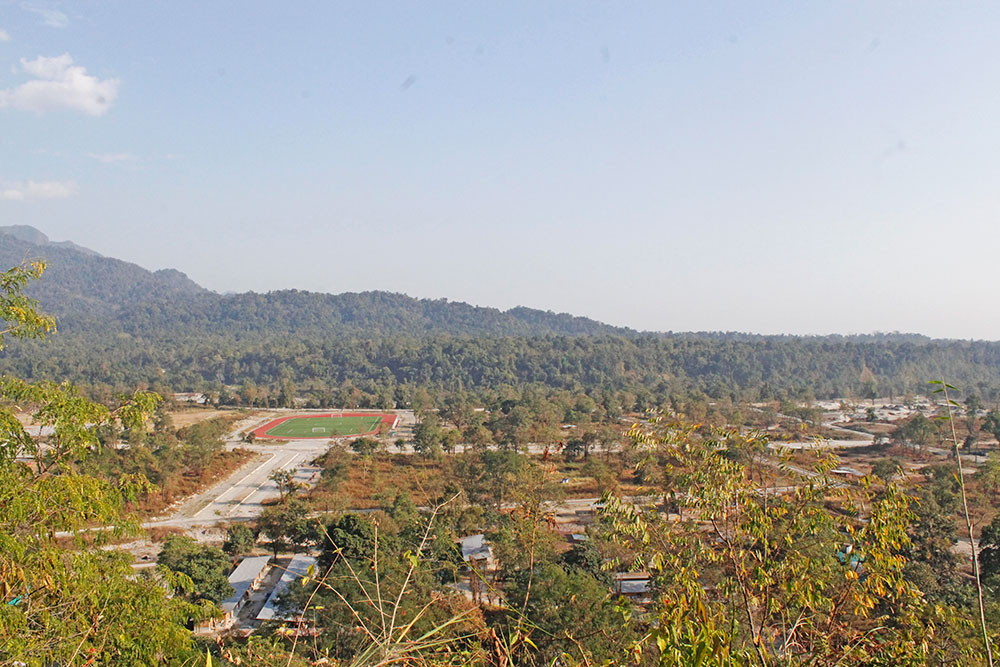Some of us believe that this is the age of information. Some of us know that this is an age of information overload. Some of us are wary of misinformation and disinformation. This leaves some of us a little informed, some of us anxious, some of us confused – and all of us wanting more.
This is very true for Bhutan because we are at a point in history, somewhere between a culture of mediocrity that we are leaving behind and a level of excellence that we are grasping. We have the mandate to excel in a rapidly changing world, a mandate assigned to Bhutanese society from the Throne.
His Majesty The King defined the legacy that today’s generation of Bhutanese must build for posterity – a Bhutan that stands proud as a developed nation. “At the end of our lives, when we bequeath our country to our children, they will inherit a stronger nation”. (His Majesty The King – May, 2008).
This Royal vision has echoed with convincing consistency over nearly two decades. A particularly moving celebration of National Day, 2023, reminded us that we live in an exciting era.
The transition of a generation and the emergence of a new period of history is illustrated by the current transformation of the country. Among the discernible landmarks of this evolution are the De-Suung programme, the Gyalsung (national service), reform of the education system, the restructuring of government. On December 17, 2023, His Majesty The King announced a major stride in this transformation process – the development of Gelephu Mindfulness City as a Special Administrative Region – a legacy that is expected to benefit Bhutan for centuries.
His Majesty The King described this moment as an inflection point in Bhutanese history – a powerful prompt for a generation of people. It is imperative, therefore, that Bhutanese society understands and be a part of the national vision that is emerging. His Majesty once said that “There can be no Bhutanese without Bhutan (His Majesty The King – 2007)”. Which means that there can be no Bhutan without Bhutanese. We are the transformation.
The question is how can we, as Bhutanese, be involved in this process of change? A first step is to discuss and understand the reality that is evolving by the day. The Royal address on National Day 2023 has stimulated some much-needed discourse on Bhutan’s future. This is emerging as news in the media, some informative and entertaining posts on social media, and discussions in the most powerful Bhutanese system of communication – the oral culture.
His Majesty the King himself has been explaining the vision for different initiatives and it is reassuring that the Bhutanese media as well as regular social media users (influencers) are among the first to be briefed. From what we have read, watched, and heard from Bhutanese media and influencers, Bhutan is starting to get it right in terms of sharing information.
The function of Bhutanese media is not just to report the news but to uphold and support the national ideology and the declared goals of the State. The conversation should be an exchange of thoughts and ideas among people. We should not forget that technology, the latest trend being AI, is just a tool that we use. Another important fact, often forgotten, is that freedom of expression and access to information is not given to media but to the people. Media, including social media, is the platform or the space where people share information and learn.
Around the world media are too often misused to benefit institutions, the market, and personalities. Bhutanese media are professionally not as strong as they need to be but have not yet been hijacked for power or profit. However, we do know that, just as all other societies have fallen prey to these trends, the tendency may be just around the corner.
It is also natural that there is anxiety among citizens, given the magnitude and pace of change that Bhutan’s transformation represents. There is fear of the unknown because there is much that we do not know. This can be provoked – in fact, it is being fanned – by gossip and rumour towards negativity and suspicion.
Here, we have to accept that it is not possible for everybody to understand everything, especially trends that the future has in store. For example, we have parents and grandparents who walked 14 days to reach Thimphu from Bumthang. They could not have predicted that their children and grandchildren would fly this distance in 24 minutes in the future. They did not need the prognosis that we seek today from technology.
In the process of national transformation, we need the chronology of vision, strategy, and implementation. This comes with the hierarchy of the State and government and broader society. But what we need most is the unity and trust which has been the strength of the Bhutanese system. With this conviction, we become a part of the future with curiosity, anticipation, and excitement.
Contributed by
Dasho Kinley Dorji


